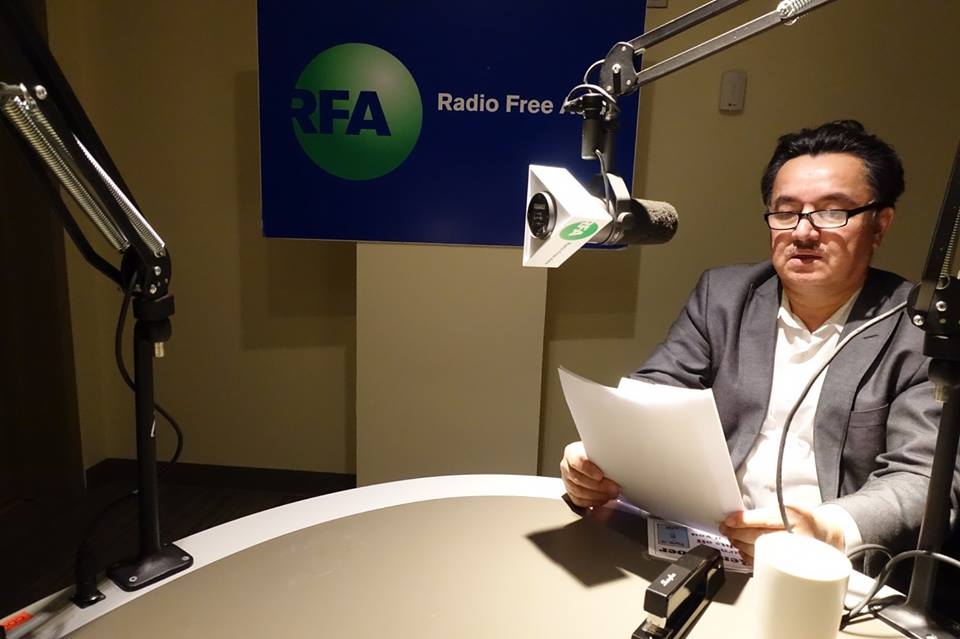Shohret Hoshur, 2015 winner

RFA Uyghur Service reporter Shohret Hoshur has consistently delivered valuable, hard-to-obtain and trustworthy exclusive stories from Xinjiang Province in China, at great personal risk. His reporting on Xinjiang and the Uyghur nation has won consistent praise from China-based foreign reporters, who admire his access, his doggedness and his accuracy. Global media outlets cited his journalism throughout 2014 but particularly in late summer and early fall when tensions in the Xinjiang Uyghur Autonomous Region escalated. These deadly incidents were either under-reported or completely ignored in Chinese state media, making RFA’s exclusive coverage even more important and sought after among audiences in China and among journalistic peers.
Hoshur was forced to leave his home in Xinjiang in December 1994 using a false passport he had procured for a fee of $600. Then a 29-year-old journalist, he had written articles in his native Uyghur language which had come to the attention of Chinese authorities who sought to silence and punish him.
Continued attempts to silence Hoshur
In retribution for his recent reporting, Chinese officials began threatening his relatives in Xinjiang, telling them they must persuade him to quit his job at RFA. On June 10, 2014, one of his brothers, Tudaxun Hoshur, was sentenced to five years in a labor camp for violating state security laws. Two other brothers were detained in 2015 for allegedly leaking state secrets after discussing the sentencing in a phone call with Hoshur, who is based in Washington, D.C. This suppression of free speech is thought to be the first long-distance intimidation used by the Chinese government.
On August 1, 2015, the New York Times, The Washington Post and Slate all did major profile pieces on the RFA Uyghur reporter and the Chinese government’s attempt to pressure him to stop writing stories on the ethnic and religious conflict in Xinjiang.
